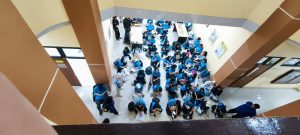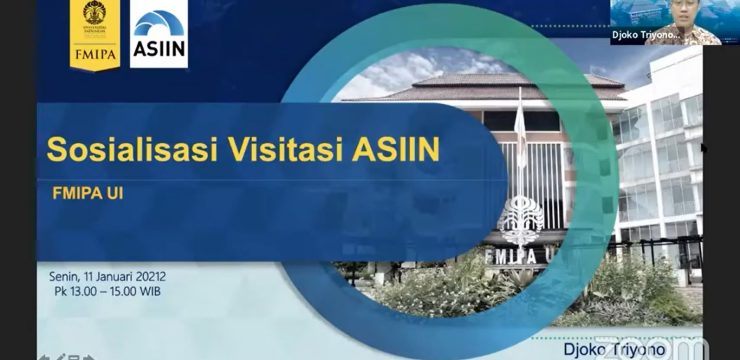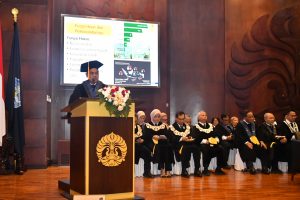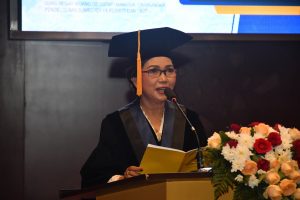The Faculty of Mathematics and Natural Sciences, University of Indonesia (FMIPA UI) continues to strive to strengthen its position in the global arena. One of them is by implementing international accreditation for its study programs.
This year, there are 4 (four) undergraduate study programs (prodi) proposed to receive international accreditation through Akkreditierungsagentur fur Studiengange der Ingenieurwissenschaften, der Informatik, der Naturwissenschaften und der Mathematik (ASIIN).
The four study programs are S1 Mathematics, S1 Physics, S1 Biology, and S1 Geography. ASIIN itself is an international accreditation institution based in Germany for the disciplines of engineering, mathematics and science, agriculture, biology.
In preparation for the implementation of the ASIIN visitation and assessment, on Tuesday (11/1/2021) the Academic Quality Assurance Unit and the ASIIN FMIPA UI team held a socialization for the academic community, education staff, and alumni.
This socialization was also attended by the Dean of FMIPA UI Dede Djuhana, Ph. D. and his staff. In his speech, he conveyed the importance of international accreditation for FMIPA UI as a leading science faculty in Indonesia, namely to achieve international recognition.
Dede also emphasized that international accreditation is also important to meet the Key Performance Indicators (KPI) of Higher Education in Indonesia as determined by the Minister of Education and Culture.
"In FMIPA UI, ASIIN accreditation is important, because it is one part of our Indicators at UI for activities that refer to the 8 points of the Main Performance Indicators."
Therefore, he instructed the relevant parties to cooperate and actively participate to make each stage a success in order to obtain the best final results.
Prof. Dr. techn. Djoko Triyono as a resource person conveyed several important points, including the benefits of International Accreditation for universities and faculties, ASIIN standards consisting of 6 (six) criteria, accreditation procedures, preparation of Self Assessment Report (SAR) to academic quality assurance issues including student accountability, international equality, meeting the needs of society and industry, improving academic standards, and accountability of funders.
“All preparations and discussions in SAR must be based on general criteria dan juga subject specific criteria" said Prof. Djoko.
"This January they (peer group ASIIN) has conducted internal prepatory meeting. What does it mean? ASIIN will see all the documentation available online from FMIPA UI. What we have provided through online access will definitely be seen, including the website, both the UI website and the faculty website". added Prof. Djoko.
Head of the Academic Quality Assurance Unit of FMIPA UI, Dr. Denny R. Silaban, M.Kom. explained that the joint SAR (Self Assessment Report) of ASIIN for the four study programs to be accredited has been sent to ASIIN. Currently, the Faculty ASIIN team together with four ASIIN Teams from each Study Program are preparing for a visitation by Peer review from ASIIN which will be held online on 21-24 February 2022. Because the visitation is conducted online, the ASIIN Team must prepare all documentation and evidence digitally as well as profile videos of labs, facilities, and infrastructure at FMIPA and UI.
"This visitation will be a very important stage of the entire accreditation process. At this stage a series of interviews will be conducted by Peer Review ASIIN and will also observe each study program through various videos and documents prepared, as well as through the FMIPA website and related study programs". Dr. Denny explained.
The series of interviews, continued Dr. Denny, will involve UI leaders, leaders of Faculties, Departments, and Study Programs of FMIPA UI, lecturers, students, alumni, education staff, and users of graduates.
The 6 (six) ASIIN assessment criteria are as follows: The first criterion is the Education Program: includes concepts, content, and implementation. The second criterion is the Education Program: includes structure, methods, and implementation. The third criterion is the Exam which includes systems, concepts, and organizations.
Next, the fourth criterion is Resources. The fifth criterion is Transparency, and documentation. The sixth criterion is Quality Management which includes quality development and assessment.
News source: https://sci.ui.ac.id/
